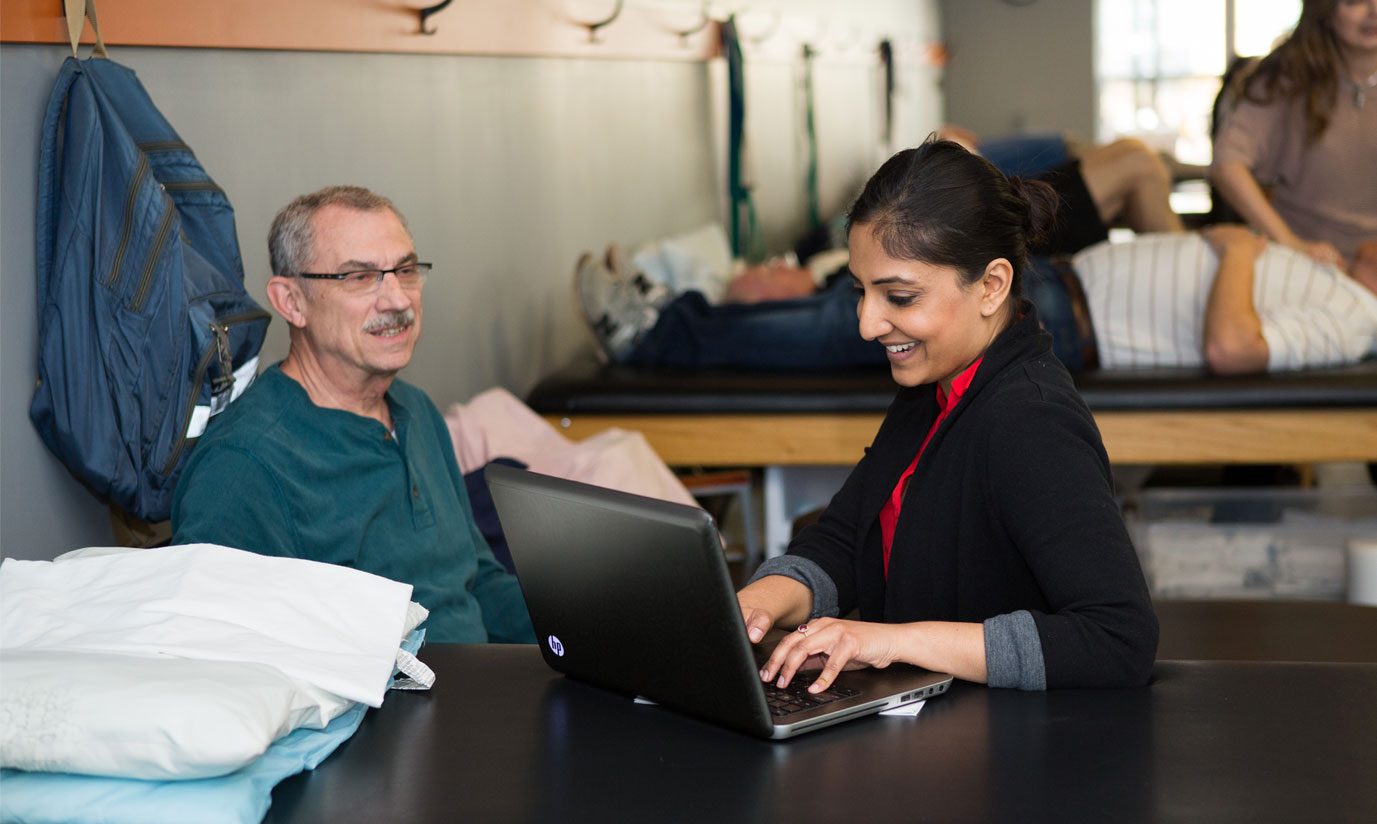
Clinical Decision-Making in Diverse Patient/Client Populations
- Registration Closed
This course explores clinical decision-making and reasoning strategies for working with diverse patient populations. You'll examine cultural competence, responsiveness, and implicit bias, while applying The Guide to Physical Therapist Practice Patient Management Model and the International Classification of Function (ICF) Model to enhance clinical reasoning. Topics include health disparities, social determinants of health, and strategies for delivering culturally appropriate care.
Key Features:
- Develop clinical decision-making skills for diverse patient populations.
- Apply ICF and Patient Management Models to practice.
- Recognize how biases impact patient care and outcomes.
- Explore health disparities and social determinants of health.
- Enhance patient-centered communication for more effective treatment.
Purchase Information:
- Free for students and members
- $90 for non-members
Earn Credit:
- 0.2 CEU or 2 contact hours
Earn continuing education credits while improving your ability to provide inclusive, patient-centered care.
Kim Nixon-Cave
PhD, PT, PCS
Kim Nixon-Cave is an Associate Professor at Thomas Jefferson University in the College of Health Professions as the program director for the DPT program and post professional residency and fellowship education.. She teaches in the area of pediatrics, psychosocial aspects of PT especially cultural competence as well as clinical education. Dr. Nixon-Cave has been an invited speaker at DPT programs on the topic of cultural competency and diversity issues. She has served on national boards for the American Physical Therapy Association including the American Board of Physical Therapy Specialties, and American Board of Physical Therapy Residency and Fellowship Education with the responsibility of developing board certification and post-professional educational programs. Dr. Nixon-Cave developed a PT Pediatric Residency and Neonatology Fellowship program at the Children’s Hospital of Philadelphia. She has been involved with the APTA initiative for cultural competence and diversity, servicing on the APTA Cultural Competence committee as well as the Diversity 200 committee.
Dr. Nixon-Cave has also focused efforts on addressing the changing healthcare environment and its impact on delivery of physical therapy services nationally. Recognized by APTA as an Innovator for changes in PT practice as it relates to Health care reform. Dr. Nixon-Cave’s clinical focus is developing evidence-based clinical programs and protocols for various patient populations with a specific interest in infants and young children. Quality Improvement Projects have focused on clinical practice, reimbursement, episodic care in inpatient and outpatient practice settings and best practice guidelines.
Dr. Nixon-Cave is a trained qualitative researcher but participates in research studies that utilize different research approaches including quantitative, qualitative, and mix methodologies to explore and examine health disparities, clinical decision-making of PTs, the impact of culture and environment on overall development, and the experience of patients and families and their interaction with the healthcare system. Dr. Nixon-Cave recently completed a research project examining the current practice of board certified pediatric specialists in physical therapy resulting in a description of specialty practice for PT pediatric certified specialists.
Marie Vazquez Morgan
PT, PhD
Dr. Vazquez Morgan earned a Bachelor’s of Science in Physical Therapy in 1993, a Masters in Health Sciences in 1997 from Louisiana State University Health Sciences Center in Shreveport and her Academic Doctorate in Health Studies from Texas Woman’s University in Denton, Texas in 2006. She has 27 years of clinical rehabilitation experience and has been a faculty member at LSU Health in Shreveport, School of Allied Health Professions since 1997. Dr. Vazquez Morgan has presented research both nationally, internationally, and regionally at continuing educations seminars on community health, cultural competence and inclusion, nutrition, health and wellness, differential diagnosis, and neurorehabilitation. She served on the American Physical Therapy Association (APTA) Committee on Cultural Competence as Chair 2009, as a committee member on the APTA Cultural Diversity Committee from 2004 – 2010 as well as on the Minority Affairs Committee for the Louisiana Physical Therapy Association. She was honored in November 2006 by Maybelline NY as Outstanding Female Educator of the year, as well as featured in People Magazine in December 2006. She was also the 2014 recipient of the Allen A Copping Teaching Award, and the American Physical Therapy Association Minority Faculty Development National Scholarship in 2003. She was featured in Adelante Movement Magazine in 2015 as a Female Minority Success Story, and recently featured as a healer in the 2018 LSU Health Evening of Healers. Dr. Vazquez Morgan was also honored with the 2020 David Cole Endowed Professorship of Community Health Initiatives, for LSU Health School of Allied Health Professions.
Course Instructions
- Click on the Contents tab to watch the course recording.
- Click the Take Quiz button to complete the assessment. Learners will have 3 attempts to pass and must answer at least 70% of questions correctly.
- Click Fill Out Survey under the Evaluation listing to provide valuable course feedback. Scroll down on all questions as there may be answer options that expand past the size of the window.
- Click the View/Print Your Certificate button under the Certificate listing. You can view/print your certificate at any time by visiting the APTA Learning Center and clicking the CEU Certificate/Transcript link on the left-hand side of the page.
Need Assistance?
For assistance logging in, accessing activities, claiming credit, or for other questions or concerns, please e-mail learningcenter@apta.org.


